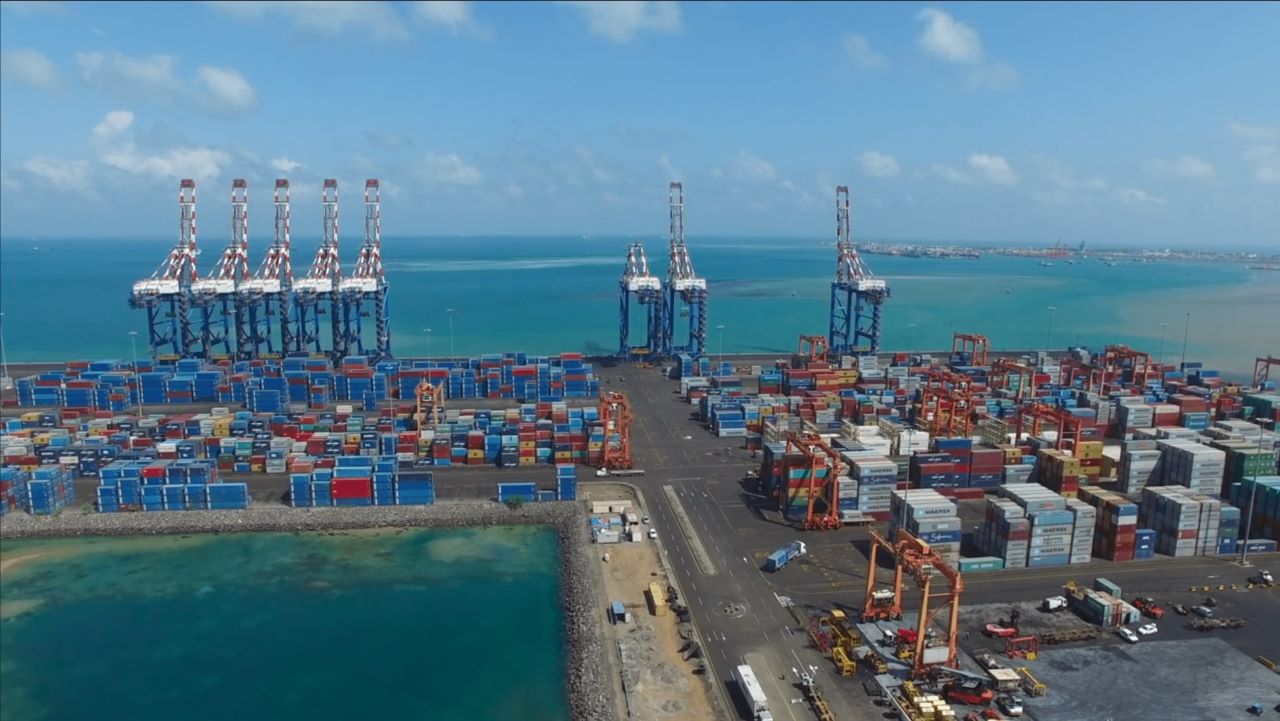
The port of Djibouti was recently ranked the top port in sub-Saharan Africa in the World Bank’s Container Port Performance Index, which ranks the global performance of container ports.
Aboubaker Omar Hadi, chairman of the Djibouti Ports and Free Zones Authority (DPFZA) – the governmental body overseeing the country’s ports – welcomed the news saying that it “is evidence of our world-class facilities and services that have allowed our country to become an ultramodern regional and global trade and logistics hub”.
“We will continue to invest in our ports and infrastructure to drive forward development in Djibouti and Africa,” he continued.
The win is the result of massive investments in the country’s infrastructure system, which are being made out as part of Vision 2035, Djibouti’s development strategy to maximise its position and become one of Africa’s top hubs for maritime.
One example is the rejuvenation and renovation project taking place at the historic port of Djibouti, which will turn it into an international business district.
DPFZA talks about the accolade and how it will fit into the country’s economic and strategic development.
How well do you really know your competitors?
Access the most comprehensive Company Profiles on the market, powered by GlobalData. Save hours of research. Gain competitive edge.

Thank you!
Your download email will arrive shortly
Not ready to buy yet? Download a free sample
We are confident about the unique quality of our Company Profiles. However, we want you to make the most beneficial decision for your business, so we offer a free sample that you can download by submitting the below form
By GlobalData
Ilaria Grasso Macola (IGM): What does it mean for Djibouti port to be the top global container?
DPFZA: Djibouti’s position as the top port in sub-Saharan Africa in the latest global Container Port Performance Index (CPPI), published by the World Bank and IHS Markit, is a testament to Djibouti’s unrivalled excellence in ports development and management.
Djibouti’s container terminal, Société de Gestion du Terminal à conteneurs de Doraleh (SGTD), serves a key transhipment hub for the East African region and the efficiency and productivity of the terminal continue to grow.
The terminal is fully connected to the Addis Ababa-Djibouti railway, with five trains a day now stopping at the port and has a throughput capacity of 1.6 million TEU. Previous reports have also highlighted that Djibouti is one of only two African countries where ships spend a median time of less than one day in its ports, making it among the most efficient in the world.
Investments in ports and infrastructure are allowing Djibouti to rise in global rankings on ports and logistics performance. Djibouti also jumped 44 places in the World Bank’s latest Logistics Performance Index in 2018.
Ongoing improvements in the performance of Djibouti’s ports, including SGTD, are helping to boost trade and development in the region and strengthening the country’s position as a global trade and logistics hub.
IGM: What were the criteria for the win?
DPFZA: The ranking reflects port performance, using two approaches – a statistical approach and an administrative approach. According to these two methodologies, Djibouti port ranks the highest in sub-Saharan Africa.
According to the report, Djibouti and Mombasa ports are the most technically efficient in Eastern and Southern Africa, based on three main variables: the sum of the length of all container and multipurpose berths in the port, the total container terminal area of the port, and the combined capacity of the cranes. In addition, several environmental variables were defined to ensure other key contextual factors were reflected in the analysis.
IGM: How does this fit with the regeneration and rejuvenation projects taking place at the country’s historic port?
DPFZA: The high performance of SGTD is evidence of the progression of Djibouti’s multi-billion investment plan to develop its ports and infrastructure and to advance Vision 2035, the national strategy to maximise the country’s geostrategic position.
Djibouti’s specialised ports and multimodal transport network have transformed Djibouti into a trade and logistics hub.
Notably, Doraleh Multipurpose Port is one of the most modern ports in Africa, with the ability to accommodate vessels with up to 100,000 DWT. The Ports of Ghoubet and Tadjourah are two multipurpose ports mainly designed to handle salt and potash to supplement the service of the other ports.
While Djibouti’s world-class ports are boosting trade and facilitating regional integration, other ambitious projects are also driving forward Djibouti’s development and that of East Africa.
The regeneration project to transform the historical port of Djibouti into an international business district called the East Africa International Special Business Zone will further strengthen Djibouti’s role as a business and trade hub.
Djibouti Ports and Free Zones Authority is applying the same level of excellence to both ongoing improvements in ports performance and the development of these ambitious infrastructure projects.
IGM: How do the ports fit into Vision 35 and the country’s economic and strategic development?
DPFZA: Vision 2035 aims to diversify Djibouti’s economy and strengthen the country’s role as a global trade, logistics and industrial hub.
Ninety percent of global trade is carried by sea and Djibouti is located along two of the world’s busiest maritime trade routes.
Djibouti aims to provide 13 landlocked countries in Africa with access to the sea; connections between Djibouti and Ethiopia are already very strong, with 90% of Ethiopia’s trade currently passing through Djibouti.
To maximise this geostrategic position, Djibouti has developed world-class ports that have allowed the country to become an international maritime hub, providing unrivalled high-quality services.
Meanwhile, the free zones are allowing Djibouti to attract foreign investment, develop industries that are helping to diversify the economy and create thousands of jobs. According to recent estimates, economic growth of up to 7% is forecast this year, double Africa’s average.







